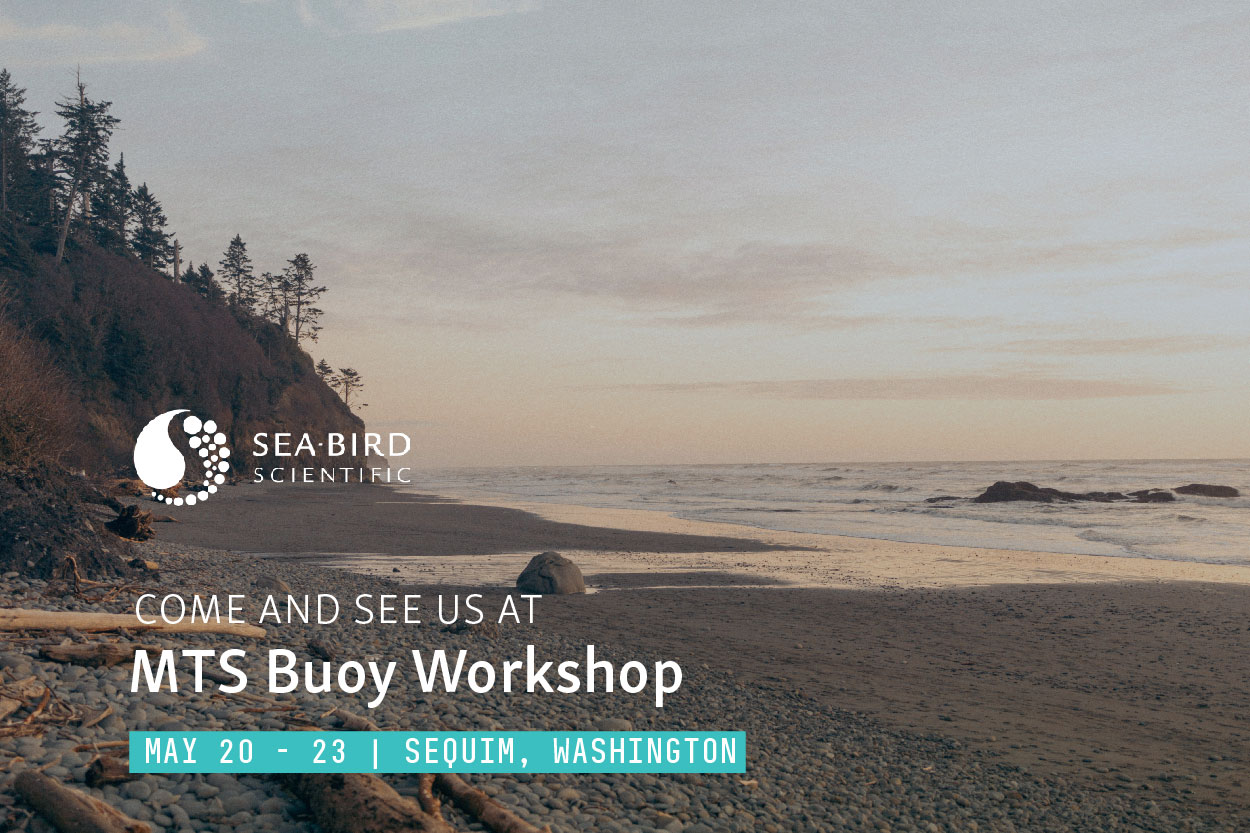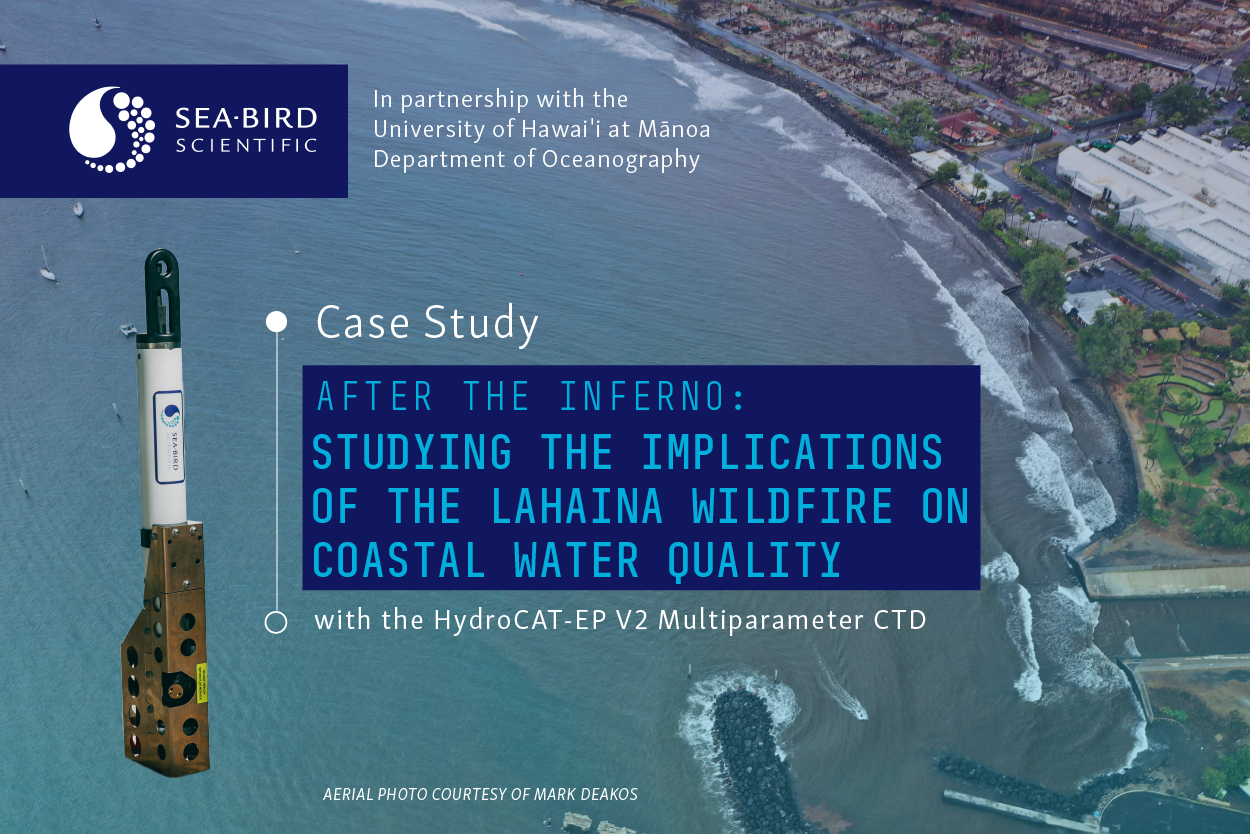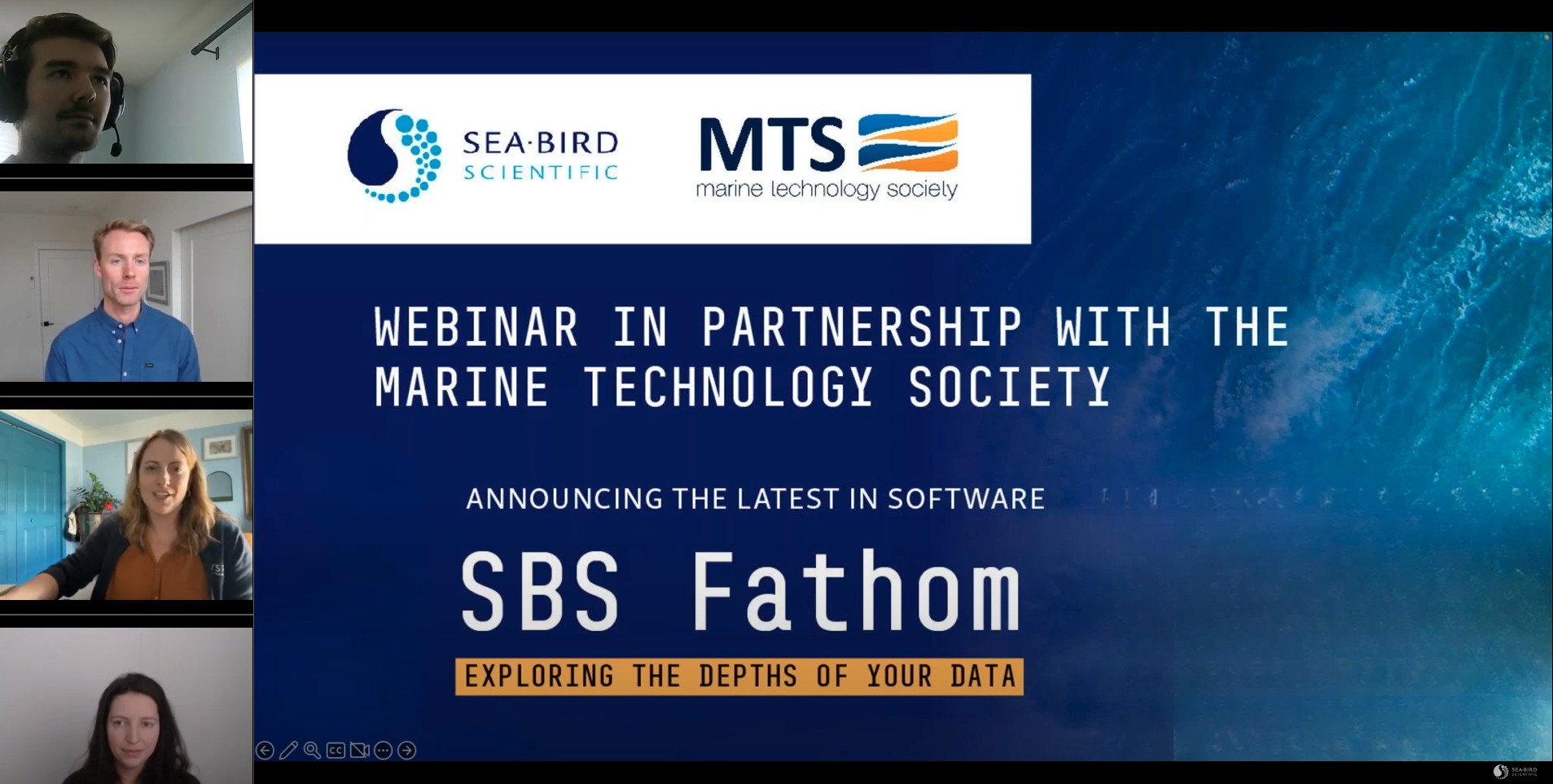From the Shores of Sea-Bird Scientific: Caitlyn McFarland
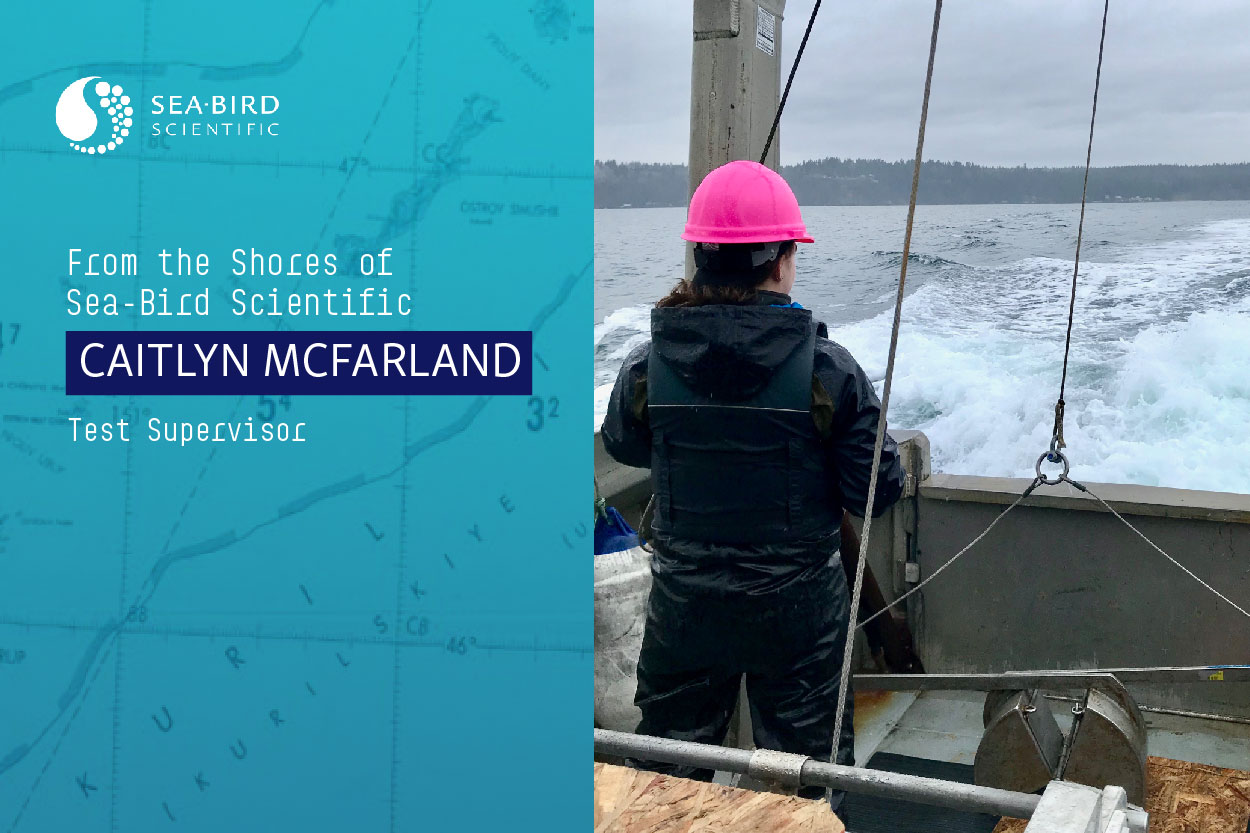
From the Shores of Sea-Bird Scientific is our monthly feature of one of our phenomenal employees that makes the magic happen behind the scenes here at Sea-Bird Scientific. This month, we’re featuring Caitlyn McFarland, our Test Supervisor!
What first got you into ocean science? Who or what inspired you?
I stepped into the oceanography world out of curiosity. I took a class in college and was immediately hooked on the complexities of the ocean and its properties. From that class until now, I have had many opportunities to pursue research in the oceanographic field. I do a lot of work with the University of Washington Tacoma as a Research Aide to Julie Masura and Cheryl Greengrove – two amazing professors that have inspired me with their dedication to science and education. It was their passion and the work that they do throughout the Puget Sound and greater Salish Sea that has forged my career path toward oceanographic science. I have had opportunities to work with NOAA, the Department of Ecology, King County’s Environmental Lab, Canada’s DFO, The University of Alaska Fairbanks, and many other research groups in harmful algal bloom quantification, micro-plastics analysis, sediment/water quality analysis, field work, and education programs.
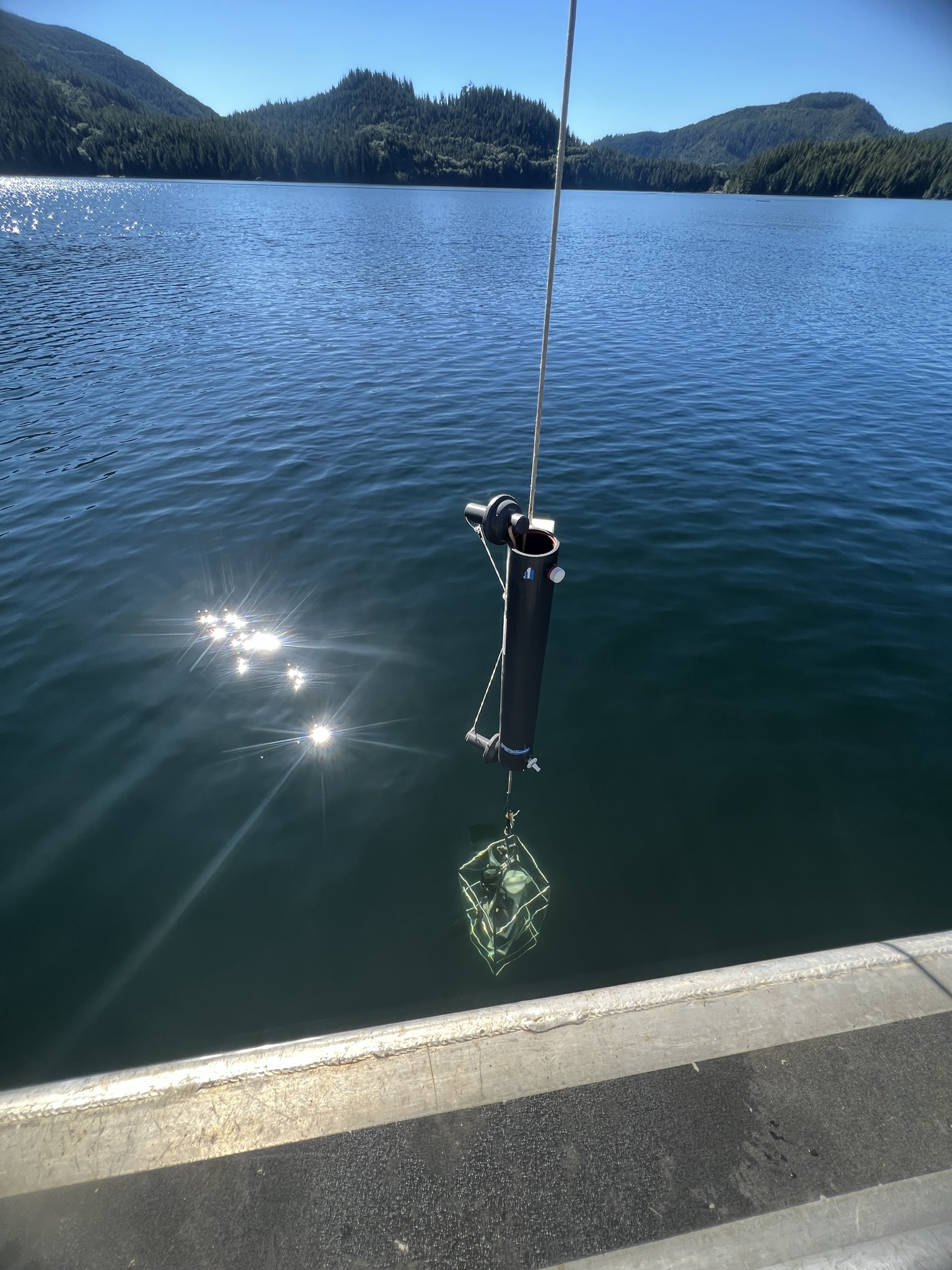
What is the most memorable thing you’ve seen while on a cruise?
Back in September of 2022, I went to Clayoquot Sound to collect data for the Canadian Department of Fisheries and Oceans. It was one of the most spectacular research cruises I have been on. The beauty of Vancouver Island, and all its wildlife was remarkable. On our last day sampling, we were taking a faster route along the western side of the island to get back to Tofino, and a gray whale popped up near our boat. We stopped for about half an hour to watch her bottom feed and dive down with her fluke shining in the sunlight. Her name was Orange Crush – a local whale that our captain knew from his previous job as a nature guide. It was an amazing experience all around and one of my most cherished trips so far. The data was pretty spectacular too with some interesting patterns we hadn’t seen before on this project.
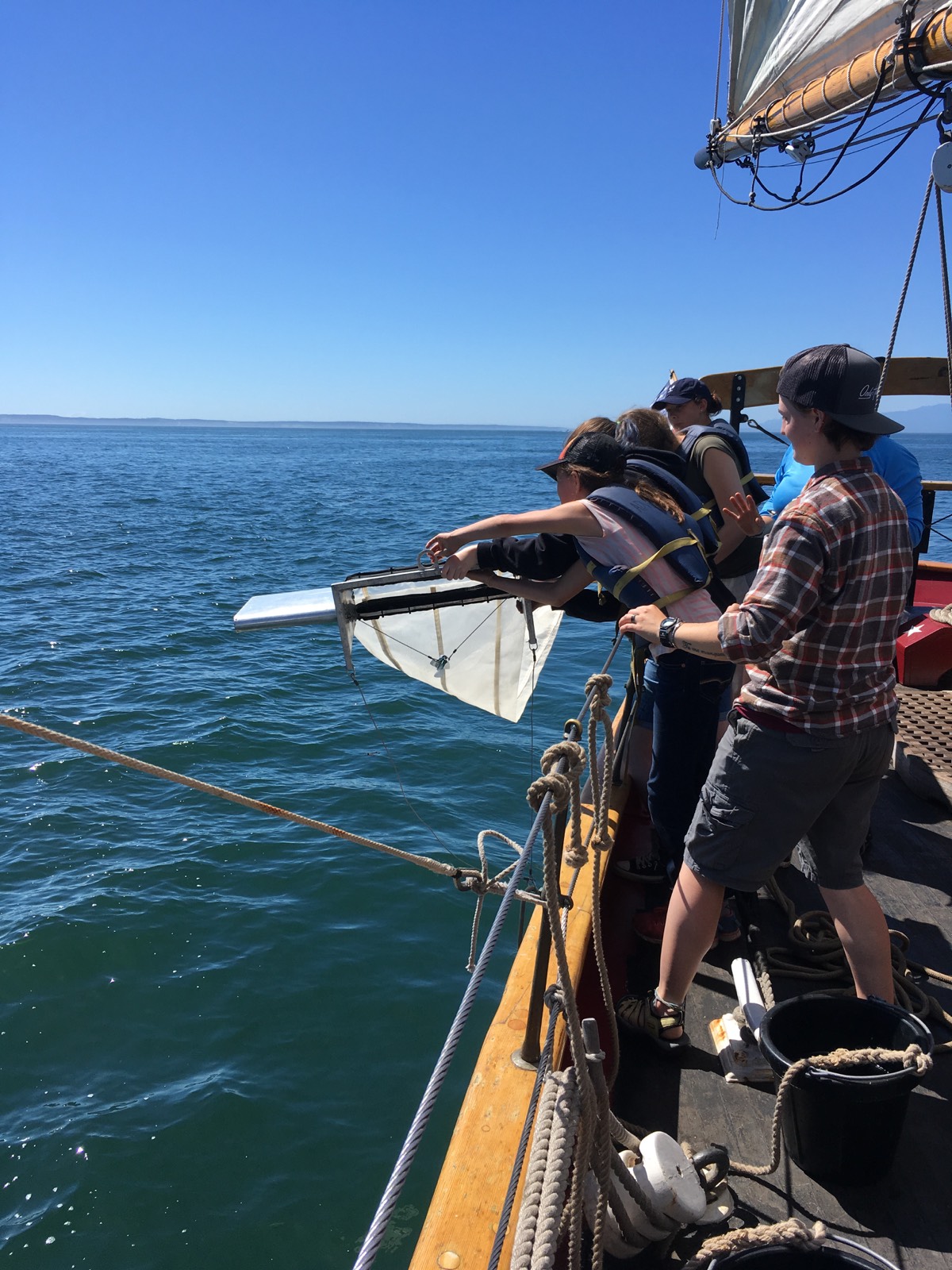
What do you think is important for people to understand about ocean science?
Ocean science research is critical to understanding our impacts on the changing environments. Climate change heavily influences ocean processes and can be seen in various ways (i.e., coral reefs dying, sea lice infestations, marine mammal health declines, etc.). What we do today directly impacts the life in the ocean. Understanding more about how anthropogenic impacts change the natural ocean processes is critical to protect our oceans. This research is important to so many local environments too – like the Puget Sound! The health of our local estuary impacts many different habitats and species. We need to work to preserve it.
Ocean science is also a field that needs more diversity. If we could create more opportunities for individuals to pursue careers in ocean science, we would be able to accomplish so much more in understanding our role in protecting, preserving, and nourishing our oceans. There are not as many opportunities for people to explore ocean science careers as other industries/careers. Plus, there is so much more to explore in the ocean! We know more about space than the big blue.

Why did you decide to come to Sea-Bird Scientific?
I had hands on experience using Sea-Bird CTDs in the field and wanted to know more about how they were made. Having a customer’s perspective on performance I felt that I could bring new ideas back to Sea-Bird from having used the instrumentation in the field. I have a passion for ocean science and advancing the equipment we use in the field was an exciting idea to me. I have used various sensors but have a special love for SBE19s since the one with the University of Washington has been a constant on every research trip I’ve been able to participate in. Working in Final Test as a Technician and now Supervisor, I have been able to use troubleshooting skills out in the field to collect valuable data for research projects that I learned in these positions. Full circle science!
Thank you for all of your hard work and for your contributions to ocean science, Caitlyn. We appreciate you!
Related Posts
Featured Posts
2024 MTS Buoy Workshop
We are excited to exhibit at the upcoming MTS Buoy Workshop this year from May 20 - 23. Please come visit us in our backyard at table #1 to chat with our team to learn more about the latest at Sea-Bird Scientific and oceanography. We'll have associates from...
Case Study: Understanding the Implications of the Lahaina Wildfire on Coastal Water Quality with the HydroCAT-EP V2
Contributors: Dr. Andrea Kealoha (she/her)¹, Natalie Zielinski (she/her)², Marialena Christopoulou (she/her)² Authors: Lindsey Biondo (she/her)², Natalie Zielinski (she/her)² ¹ University of Hawai’i at Mānoa, Department of Oceanography, 1000 Pope Road, Honolulu, HI...
Webinar on Fathom Software in Partnership with the Marine Technology Society
We were excited to partner with the Marine Technology Society (MTS https://www.mtsociety.org/) to bring you a webinar to walk through our new software. We’re excited to release Fathom – the latest in software innovation at Sea-Bird Scientific (SBS). Heather Eberhart,...
